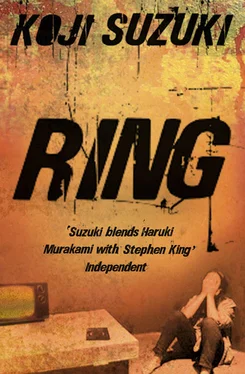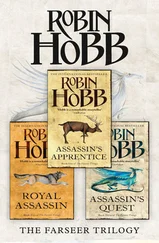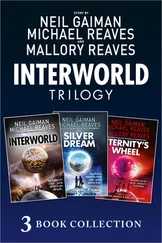Again the screen was swathed in darkness. The clear blue sky was instantaneously painted black, and then, a few seconds later, a scarlet liquid spurted out from the center of the screen, flowing downward. A second explosion. The spray thrown up by it burned red, and as a result he could begin to make out, faintly, the outline of the mountain. The images were now concrete where they had previously been abstract. This was clearly a volcanic eruption, a natural phenomenon, a scene that could be explained. The molten lava flowing from the mouth of the volcano threaded its way down through ravines and headed this way. Where was the camera positioned? Unless it was an aerial shot, it looked like the camera was about to be swallowed up. The rumblings of the earth increased until the whole screen seemed about to be engulfed in molten rock, and then the scene abruptly changed. There was no continuity from one scene to the next, only sudden shifts.
Thick, black letters floated into view against a white background. Their edges were blurred, but he somehow managed to make out the character for “mountain”. It was surrounded by black splatters, as if it had been written sloppily by a brush dripping with ink. The character was motionless, the screen was calm.
Another sudden shift. A pair of dice, tumbling around in the rounded bottom of a lead bowl. The background was white, the bottom of the bowl was black, and the one on the dice was red. The same three colors he’d seen so often already. The dice rolled around soundlessly, finally coming to rest: a one and a five. The single red dot and the five black ones arranged on the white faces of the dice … What did it mean?
In the next scene people appeared for the first time. An old woman, face lined with wrinkles, sat perched on a pair of tatami mats on a wooden floor. Her hands rested on her knees and her left shoulder was thrust slightly forward. She was speaking, slowly, looking straight ahead. Her eyes were different sizes—when she blinked, it looked like she was winking instead.
She was speaking in an unfamiliar dialect, and he could only catch every other word or so:
… your health … since … spend all your time … bound to get you. Understand? Be careful of … you’re going to … you listen to granny now because … there’s no need to …
The old expressionless woman made her statement, then vanished. There were a lot of words he didn’t understand. But he had the impression he’d just been lectured to. She was telling him to be careful of something, warning him. Who was this old lady talking to—and about?
The face of a newborn baby filled the screen. From somewhere he could hear a baby’s first cry. This time, too, he was sure it didn’t come from the television speakers. It came from very near, beneath his face. It was very like a real voice. On-screen, he could now see hands holding the baby. The left hand was under its head, and the right was behind its back, holding it carefully. They were beautiful hands. Totally absorbed by the image, Asakawa found himself holding his own hands in the same position. He heard the birth cry directly below his own chin. Startled, he pulled back his hands. He had felt something. Something warm and wet—like amniotic fluid, or blood—and the weight of flesh. Asakawa jerked his hands apart, as if casting something aside, and brought his palms close to his face. A smell lingered. The faint smell of blood—had it come from the womb, or …? His hands felt wet. But in reality, they weren’t even damp. He restored his gaze to the screen. It still showed the baby’s face. In spite of the crying its face was swathed in a peaceful expression, and the shaking of its body had spread to its groin, even wiggling its little thing.
The next scene: a hundred human faces. Each one displayed hatred and animosity; he couldn’t see any distinguishing features other than that. The myriad faces, looking as if they had been painted on a flat surface, gradually receded into the depths of the screen. And as each face diminished in size, the total number increased, until they had swollen to a great multitude. It was a strange multitude, though—existing only from the neck up—but the sounds welling up from them befit a crowd. Their mouths were shouting something, even as they shrank and multiplied. He couldn’t quite make out what they were saying. It sounded like the commotion of a great gathering, but the voices were tinged with criticism, abuse. The voices were clearly not welcoming or cheering. Finally he made out a word: “ Liar! ” And another: “ Fraud! ” By now there were perhaps a thousand faces: they had become nothing but black particles, filling the screen until it looked like the television had been turned off, but the voices continued. It was more than Asakawa could bear. All that criticism, directed right at him. That’s how it felt.
When the next scene appeared, it showed a television on a wooden stand. It was an old-fashioned nineteen-inch set with a round channel selector, and a rabbit-ear antenna sat on its wooden cabinet. Not a play within a play, but a TV within a TV. The television within had nothing on its screen yet. But it seemed to be on: the red light by the channel knob was lit. Then the screen-within-the-screen wavered. It stabilized and then wavered again, over and over, with increasing frequency. Then a single character appeared, hazily: sada . The word faded in and out of focus, distorted, and began to look like another before disappearing altogether, like chalk on a blackboard wiped with a wet rag.
As he watched, Asakawa began to find it hard to breathe. He could hear his heart beat, feel the pressure of the blood flowing in his veins. A smell, a touch, a sour-sweet taste stabbing his tongue. Strange—something was stimulating his five senses, some medium besides the sounds and visions that appeared as if he were suddenly recalling them.
Then the face of a man appeared. Unlike the previous images, this man was definitely alive—he had a pulsating vitality. As he watched, Asakawa began to feel hatred toward him. He had no idea why he should hate this man. He wasn’t particularly ugly. His forehead sloped a bit, but other than that he was actually rather well-formed. But there was something dangerous in his eyes. They were the eyes of a beast closing in on its prey. The man’s face was sweaty. His breathing was ragged, his gaze was turned upward, and his body was moving rhythmically. Behind the man grew scattered trees, the afternoon sunlight shone between their branches. The man brought his eyes down and looked straight ahead again, and his gaze locked with the viewer’s. Asakawa and the man stared at each other for a while. The stifling sensation grew, and he suddenly wanted to tear his gaze away. The man was drooling; his eyes were bloodshot. His neck muscles began to fill the screen in a closeup, then disappeared off the left side of the screen. For a while only the black shade of the trees could be seen. A scream began to well up from deep down inside. At the same time, the man’s shoulder came back into view, then his neck, and finally his face again. His shoulders were bare, and the right one carried a deep, bloody gash several centimeters long. Drops of blood seemed to be sucked toward the camera, growing larger and larger until they hit the lens and clouded over the view. The screen cut to black once, twice, almost like blinking, and when the light returned everything was red. There was a murderous look in the man’s eyes. His face drew closer, along with his shoulder, the bone peeking out white where the flesh had been gouged out. Asakawa felt a violent pressure on his chest. He saw trees again. The sky was spinning. The color of the sky fading into sunset, the rustling of dry grass. He saw dirt, then weeds, and then sky again. Somewhere he heard a baby crying. He wasn’t sure if it was the little infant from before. Finally, the edge of the screen turned black, darkness gradually encroaching in a ring on the center. Dark and light were clearly defined now. At the center of the screen, a small round moon of light floated in the middle of the darkness. There was a man’s face in the moon. A fist-sized clump of something fell from the moon, making a dull thud. Another, and then another. With each sound, the image jumped and swayed. The sound of flesh being smashed, and then true darkness. Even then, a pulse remained. Blood still circulated, throbbing. The scene went on and on. A darkness that seemed as if it would never end. Then, just as at the beginning, words faded into view. The writing in the first scene had been crude, like that of a child just learning to write, but this was somewhat better. White letters, drifting into view and then fading, read:
Читать дальше












